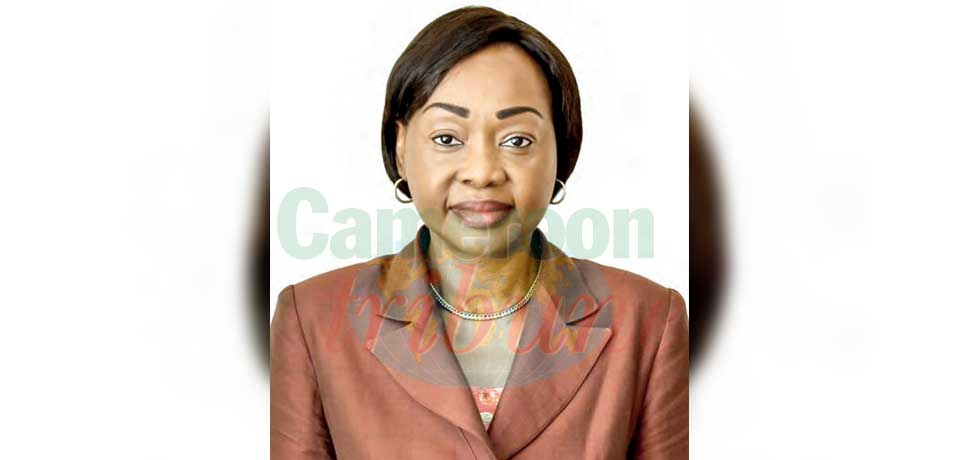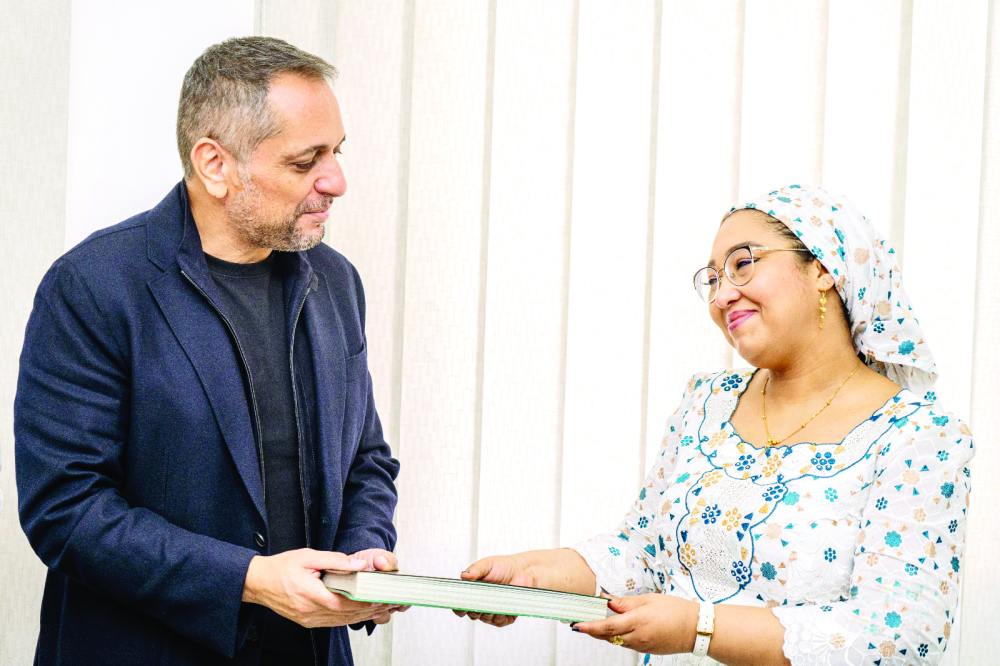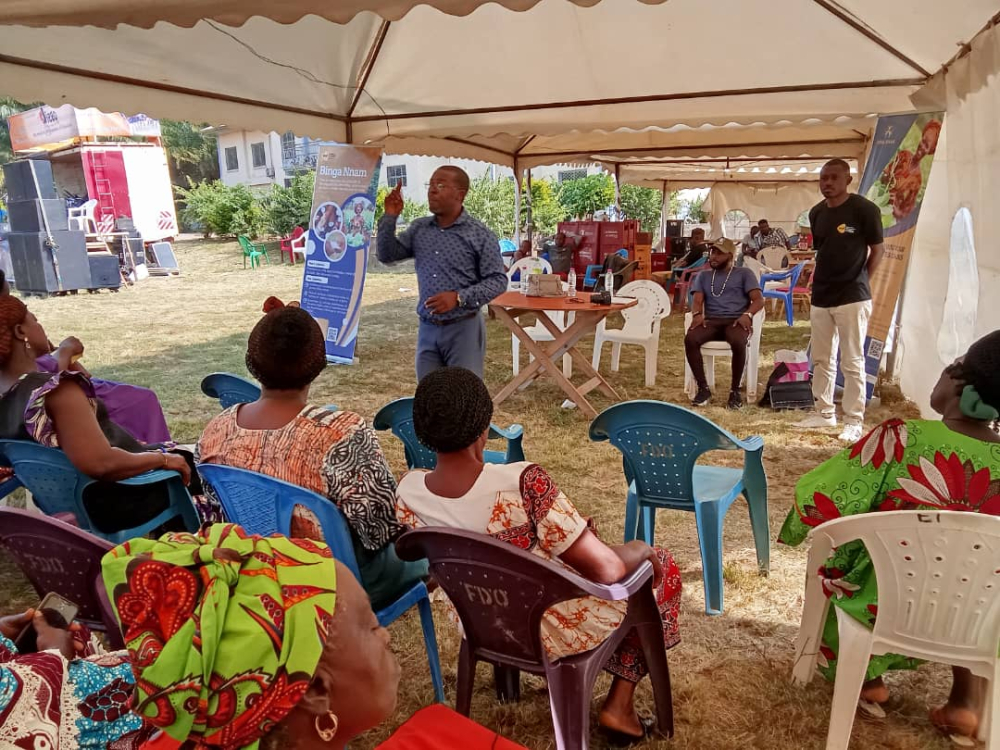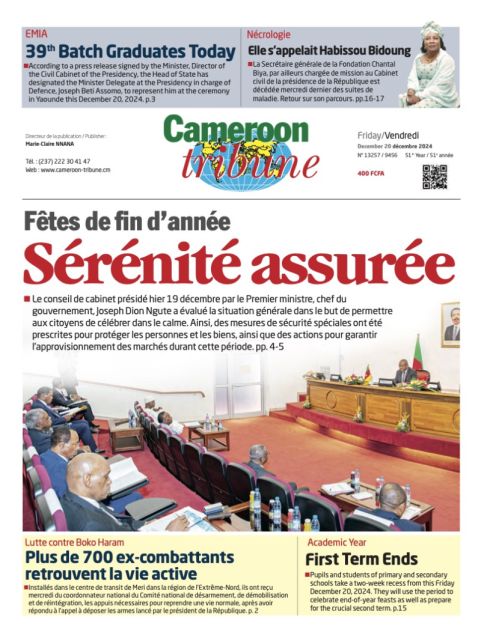“Notaries Facilitate All Property Transactions”
- Par Brenda YUFEH,
- 23 oct. 2023 17:17
- 0 Likes

Régine Dooh Collins, President of the Cameroon National Chamber of Notaries.
The 32nd Congress of African Notaries will take place from 25 to 27 October 2023 in Yaounde. What exactly is the role of a notary in society?
The notary is a public officer appointed to receive all deeds and contracts which the parties must or wish to authenticate as acts of public authority, and to ensure their date, keep their deposit and issue copies and expeditions (Article 2 of Decree No. 95/034 of 24 February 1995 on the Status and Organisation of the Notary profession). Notaries are essential to all property transactions, as set out in Article 5 of Decree No. 79/017 of 13 January 1979 on Private Property Transactions and Article 1 of Law No. 61-20 of 27 June 1961 on Notarial Deeds. Their mission is to guarantee the legal security of the deeds they receive and to protect the rights of users by verifying the legality of the transactions they enter into. A notary plays an important role in the lives of individuals as well as businesses. They are involved in all major events: marriage contracts, the purchase of a family home, adoption, gifts, wills, company incorporation, mergers, demergers, takeovers and the dissolution of companies, etc.
How can someone become a notary in Cameroon?
The conditions and procedures for becoming a notary are governed by the above-mentioned Decree on the status and organisation of the notary profession in Cameroon. In fact, you must first hold a law degree from a Cameroonian University, apply for an internship in a Notary’s Office where, after three (3) years of internship, you become eligible for the professional examination leading to the title of Chief Clerk awarded by an order of the Minister of Justice. The Chief Clerk of a Notary’s Office must have completed at least one-year training in Cameroon in order to be eligible for appointment as a Notary in the country by submitting a relevant file to the Ministry of Justice. The title of Notary is conferred by Decree of the President of the Republic.
How Can an Ordinary Cameroonian Identify a True Notary?
This is an opportunity for us to draw the public’s attention to the need for greater vigilance. To find out whether you are dealing with a genuine notary, you need to refer to the official notice board published by the Cameroon National Chamber of Notaries, which contains a complete list of practising notaries and the location of their notarial offices. It should be noted that there are offices which were filled by Notaries and which are currently being liquidated due to the unavailability of the said Notaries. The Liquidators appointed by order of the Minister of Justice are listed and located on the table below. Their mission is to proceed with the completion of the files in progress and the liquidation of the firm under the conditions of Article 80 of the aforementioned Decree on the status and organisation of the Notary profession in Cameroon. They may not receive new deeds or take out loans in the context of the liquidation. The Cameroon National Chamber of Notaries reminds the public that any other person carrying out the notary’s activity without having the capacity to do so is liable to prosecution in accordance with the provisions of Article 216 of the Cameroon Criminal Code which punishes the misuse of title in the following terms: "Anyone who, without a title, interferes in public functions, either civil or military, or performs the acts of one of these functions, is liable to imprisonment of between six months and five years."
There are so many quacks acting as notaries. What is the Chamber doing to fight this?<...
Cet article complet est réservé aux abonnés
Déjà abonné ? Identifiez-vous >
Accédez en illimité à Cameroon Tribune Digital à partir de 26250 FCFA
Je M'abonne1 minute suffit pour vous abonner à Cameroon Tribune Digital !
- Votre numéro spécial cameroon-tribune en version numérique
- Des encarts
- Des appels d'offres exclusives
- D'avant-première (accès 24h avant la publication)
- Des éditions consultables sur tous supports (smartphone, tablettes, PC)
















Commentaires